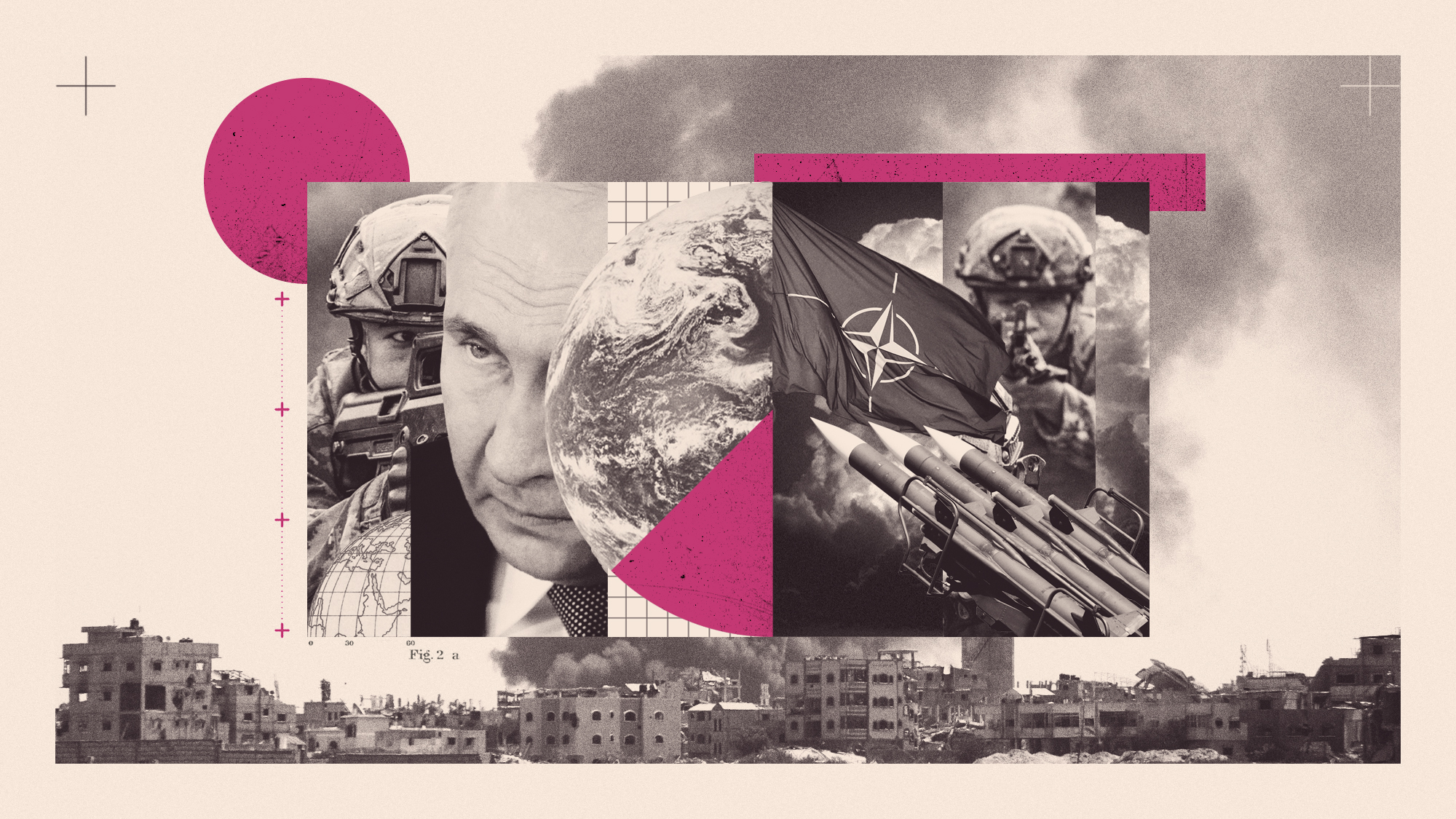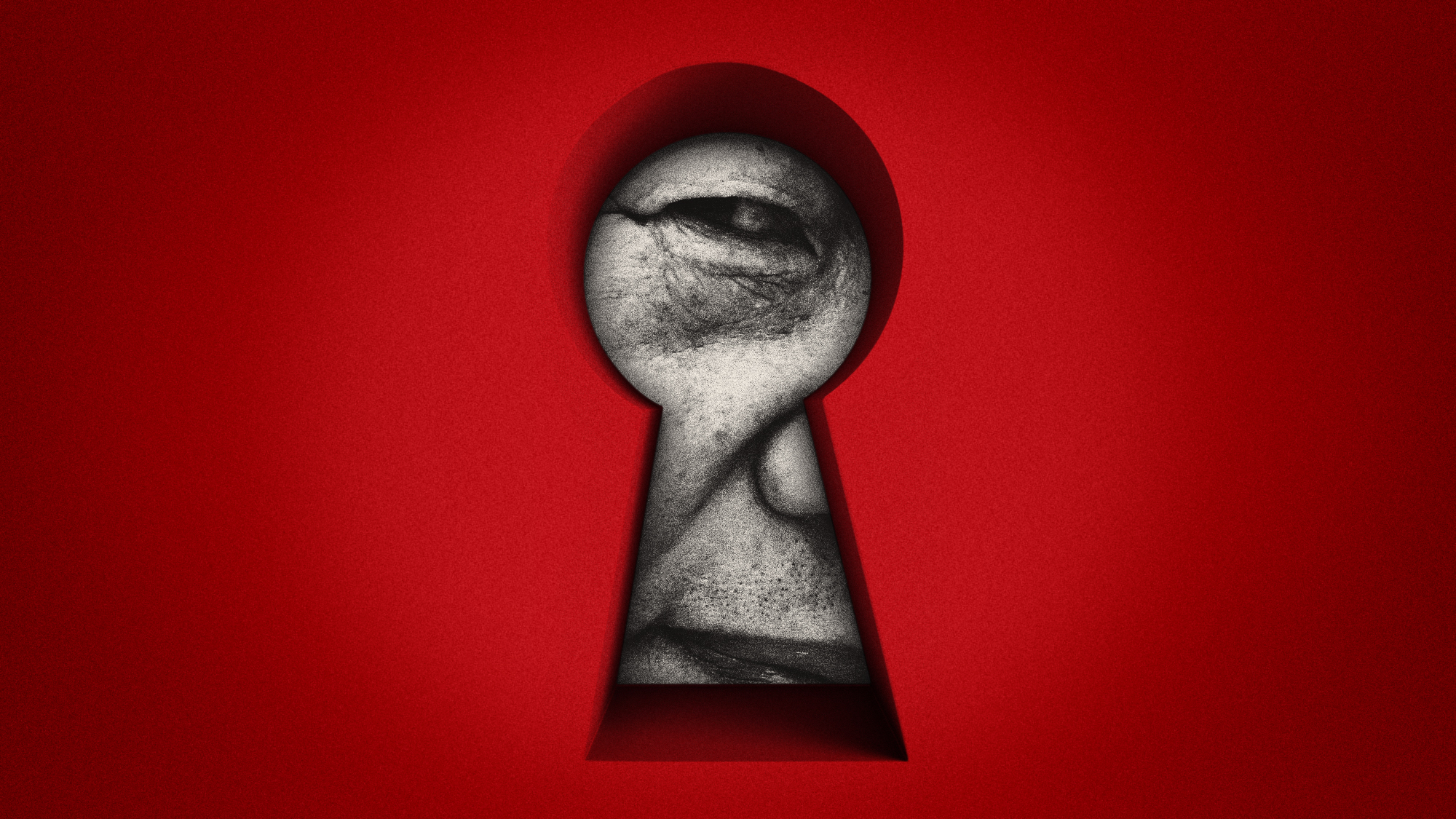How would we know if World War Three had started?
Most of us probably won’t realise that we are in a global conflict – at first

A free daily email with the biggest news stories of the day – and the best features from TheWeek.com
You are now subscribed
Your newsletter sign-up was successful
Russia has followed up its drone incursions into Poland and Romania with a major military exercise in neighbouring Belarus – a “display of firepower” that has “stirred unease in European capitals amid mounting regional tensions and fears that Moscow is probing Nato’s defences”, said The Guardian.
It came less than a week after Poland’s prime minister, Donald Tusk, said that his country was at its “closest to open conflict since the Second World War”. Stoking tensions between the Kremlin and the Western military alliance even further, former Russian president Dimitry Medvedev warned that calls for the establishment of a no-fly zone in Ukraine and for allowing its allies to shoot down Russian drones “would mean only one thing – a Nato war with Russia”.
Talk of a global conflict may be reaching fever pitch but the reality is that most people won’t know they are in a world war until fighting is well under way – or so history teaches us.
The Week
Escape your echo chamber. Get the facts behind the news, plus analysis from multiple perspectives.

Sign up for The Week's Free Newsletters
From our morning news briefing to a weekly Good News Newsletter, get the best of The Week delivered directly to your inbox.
From our morning news briefing to a weekly Good News Newsletter, get the best of The Week delivered directly to your inbox.
The Second World War was “simply ‘the War’ until the late 1940s” in Britain, according to History.com, although US president Franklin D. Roosevelt “publicly declared it” as such when America entered the conflict in 1941.
But, although Russia’s invasion of Ukraine, fighting in the Middle East and rising Chinese threats against Taiwan have intensified fears, the truth is that another world war will “only come into existence when people subjectively agree that it has”, said Gavriel Rosenfeld in The Washington Post.
When would we know the Third World War had begun?
Claims we are approaching the Third World War have long been used by leaders on all sides as a tool of diplomatic brinkmanship.
Some, including Ukraine’s President Volodymyr Zelenskyy, believe that the Third World War “may have already started”. Last November, Ukraine’s former military commander-in-chief, Valery Zaluzhny, pointed to the “direct involvement of Russia's autocratic allies” on the ground in Ukraine, including North Korean soldiers deployed alongside Russian troops and the use of Chinese and Iranian weapons, said Politico.
A free daily email with the biggest news stories of the day – and the best features from TheWeek.com
Multiple “system-changing conflicts with multivector loads of countries involved” are a sign that the next world war has indeed already started, UK security analyst Fiona Hill told The Guardian – if only we would recognise it.
Yet many argue that “it is not World War Three yet” until the direct involvement of Nato countries, for whom the war in Ukraine remains a “proxy war against the alliance’s Eurasian geopolitical mega-rival”, said Mark Almond in The Independent.
The breaching of Polish airspace by Russian drones marked the “most serious incursion into Nato territory since the foundation of the alliance in 1949”, said The Economist. Poland’s government has responded “much more decisively than in the past, but stopped well short of invoking Article 5, Nato’s collective-defence clause”. For the time being, it “appears to be keeping its powder dry, in anticipation of further and even broader Russian aggression”.
In the end, we may not really know the Third World War has happened until it enters “the history books as a real event in retrospect”, said The Washington Post’s Rosenfield.
Are there signs that the Third World War is on the way?
“The question of how a third world war might erupt haunts us today more than at any time since the end of the last world war,” said author Richard Overy in The Telegraph.
The world is perhaps in as tense a position as it has been in nearly a century and countries are more readily equipped with stockpiles of highly destructive weapons than they were before the previous wars.
The “major powers” holding nuclear weapons make the “situation far more perilous”, Dr David Wearing, lecturer in international relations at the University of Sussex, told Sky News. This is not because one side is more likely to make a “premeditated decision to spark the apocalypse” but that, if one side “misinterprets” the action of the other, a “nuclear exchange begins, despite the fact that no one was looking for one”.
This is a view also held by citizens across Europe and America. A YouGov poll published in May found nearly half of people on both sides of the Atlantic believe another global conflict is likely to occur in the next five to ten years.
The vast majority of those polled expect any future global conflict would involve the use of nuclear weapons. This would lead to a higher casualty count than in previous world wars, with a sizeable minority thinking it would lead to the deaths of most people on the planet.
How would the Third World War be fought?
Whether it’s Nato vs. Russia over Ukraine or the US vs. China over Taiwan, any conflict between the “great powers” is “rarely settled in a neat, tidy fashion”, said Brian Kerg at the New Atlanticist.
Wars between world superpowers are usually “long, gruelling slogs of attrition”, which then “tend to expand horizontally, ensnaring other regions in their wake”. That is possibly the clearest sign that the Third World War is under way.
Nuclear arms, of course, present the risk of conflicts being over in a rapid flash of mass destruction. The “tearing up” of treaties that capped the spread of nuclear arms means more countries than ever are now in a position to build a nuclear arsenal: a sign that the “old nuclear order is dead”, said Richard Spencer in The Times, and the “only thing preventing catastrophe is, once again, mutually assured destruction”.
That could mean nuclear arms are more likely to be used as “tactical weapons”, rather than the all-out bombings of Hiroshima and Nagasaki in 1945. Smaller nuclear weapons could be “fired from artillery or tanks, or attached to short-range missiles”.
The scenario of Putin using tactical nuclear weapons in Ukraine, Iran building a nuclear bomb and using it on Israel, or China deploying them against Taiwan are all “possible” if still not “probable”, said The Telegraph’s Overy.
“Predicting – more accurately, imagining – the wars of the future can produce dangerous fantasies that promote anxiety over future security. It is likely that even the most plausible prognosis will be wrong.”
-
 Political cartoons for February 16
Political cartoons for February 16Cartoons Monday’s political cartoons include President's Day, a valentine from the Epstein files, and more
-
 Regent Hong Kong: a tranquil haven with a prime waterfront spot
Regent Hong Kong: a tranquil haven with a prime waterfront spotThe Week Recommends The trendy hotel recently underwent an extensive two-year revamp
-
 The problem with diagnosing profound autism
The problem with diagnosing profound autismThe Explainer Experts are reconsidering the idea of autism as a spectrum, which could impact diagnoses and policy making for the condition
-
 Munich Security Conference: a showdown between Europe and Trump?
Munich Security Conference: a showdown between Europe and Trump?Today’s Big Question Report suggests European leaders believe they can no longer rely on the US for military support – but decoupling is easier said than done
-
 What is ‘Arctic Sentry’ and will it deter Russia and China?
What is ‘Arctic Sentry’ and will it deter Russia and China?Today’s Big Question Nato considers joint operation and intelligence sharing in Arctic region, in face of Trump’s threats to seize Greenland for ‘protection’
-
 Is the Chinese embassy a national security risk?
Is the Chinese embassy a national security risk?Today’s Big Question Keir Starmer set to approve London super-complex, despite objections from MPs and security experts
-
 What would a UK deployment to Ukraine look like?
What would a UK deployment to Ukraine look like?Today's Big Question Security agreement commits British and French forces in event of ceasefire
-
 Would Europe defend Greenland from US aggression?
Would Europe defend Greenland from US aggression?Today’s Big Question ‘Mildness’ of EU pushback against Trump provocation ‘illustrates the bind Europe finds itself in’
-
 Did Trump just end the US-Europe alliance?
Did Trump just end the US-Europe alliance?Today's Big Question New US national security policy drops ‘grenade’ on Europe and should serve as ‘the mother of all wake-up calls’
-
 Taiwan eyes Iron Dome-like defence against China
Taiwan eyes Iron Dome-like defence against ChinaUnder the Radar President announces historic increase in defence spending as Chinese aggression towards autonomous island escalates
-
 Is conscription the answer to Europe’s security woes?
Is conscription the answer to Europe’s security woes?Today's Big Question How best to boost troop numbers to deal with Russian threat is ‘prompting fierce and soul-searching debates’